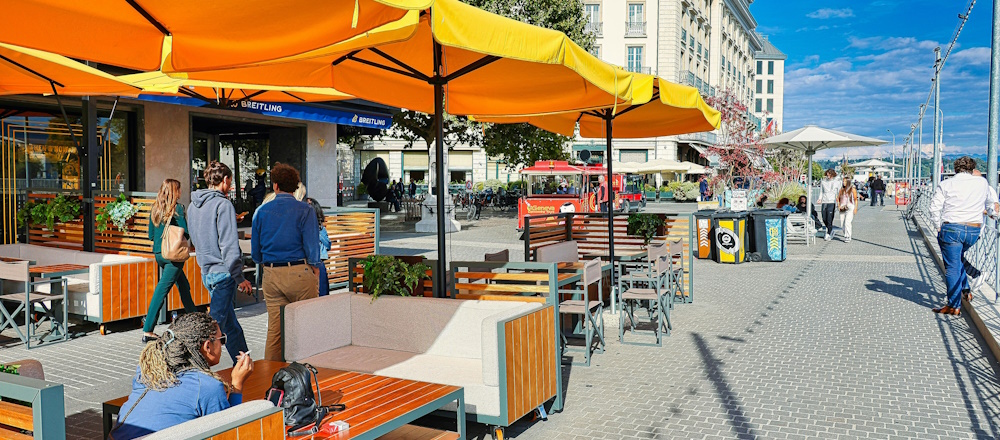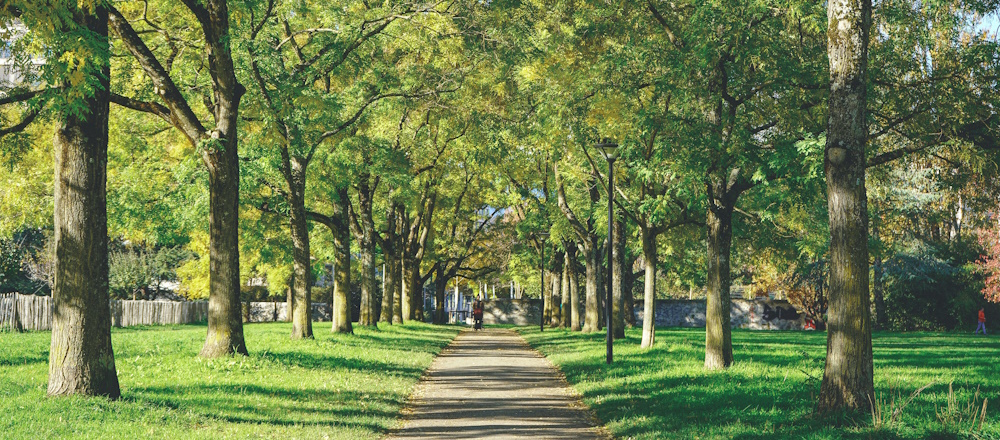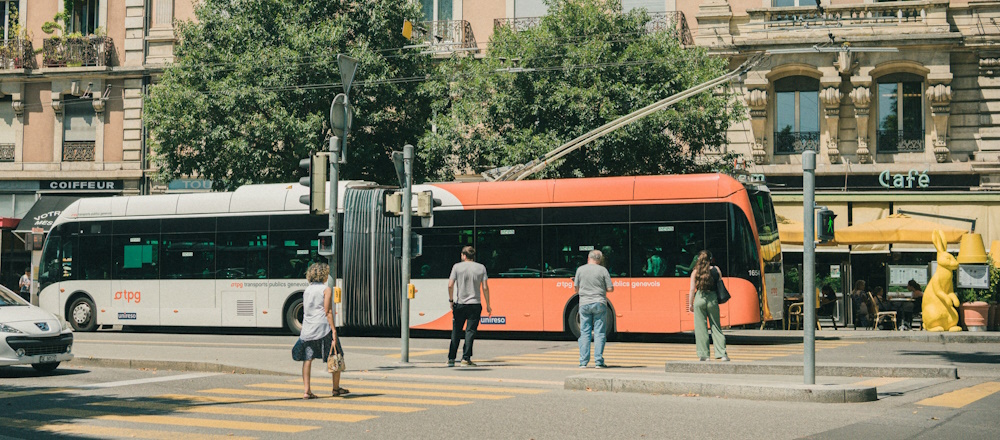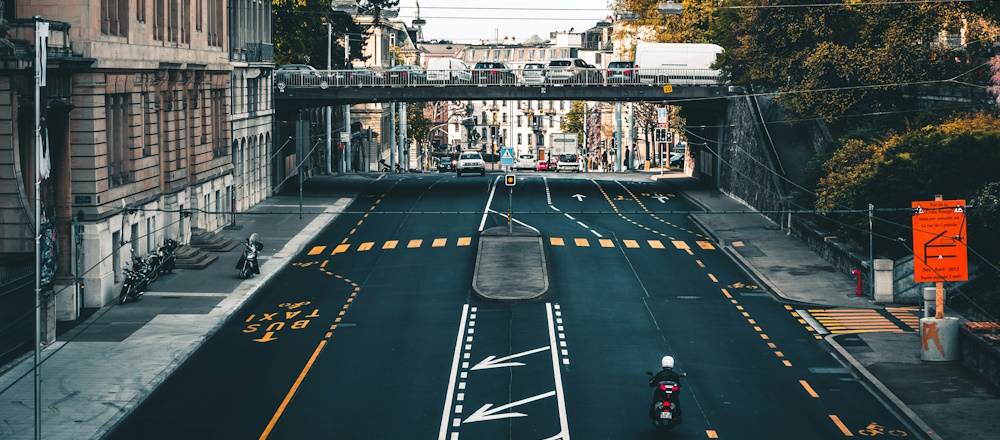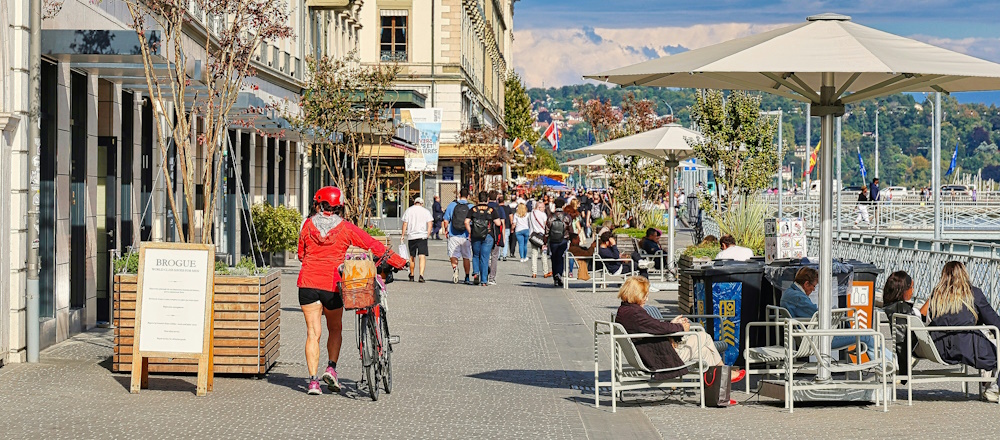Moving to Geneva means settling in one of Europe’s prettiest cities, sprawled around the southern tip of the impossibly picturesque Lac Léman (Lake Geneva). The Alps and Jura Mountains surround the city, which boasts staggering views of the famous Mont Blanc.
As one of the European headquarters of the United Nations, the World Health Organization and several multinational corporations, Geneva’s identity is diverse and complex. The official language is French, but you are just as likely to hear the city's multilingual population speaking English, German or Italian in professional settings.
Living in Geneva as an expat
Living in Geneva as an expat offers a unique blend of international career opportunities and Swiss quality of life. Expats are lured to Geneva by the promise of high salaries – typically in finance, international organisations, biotechnology or IT – but residents enjoy an enviable work-life balance. Swiss labour laws ensure maximum working hours remain capped at 45 hours weekly for most sectors, making it easy to find respite from the working week.
Working in Geneva
Working in Geneva places you at the heart of a variety of thriving industries. The city remains a stronghold for international organisations, finance, biotechnology, and, increasingly, sustainability-focused enterprises. The job market is relatively stable for skilled professionals.
Cross-border work arrangements in Geneva have become more flexible, with agreements between France and Switzerland’s governments allowing for partial remote work. This way, you have the option to live in more affordable French border towns while maintaining employment in Geneva.
Another advantage is the city’s location. Other European countries are in easy reach, making it a fantastic destination from which to explore the continent. The annual minimum holiday allowance of four weeks (five for those under 20) provides ample travel and leisure opportunities.
Finding a Job in Geneva
Visas and Residence Permits for Switzerland
Lifestyle in Geneva
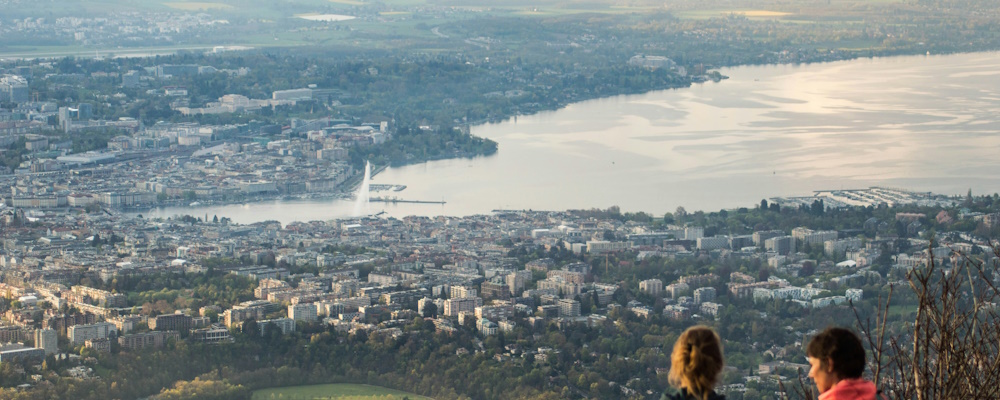
The lifestyle in Geneva offers an enticing blend of urban sophistication and outdoor adventure. The city hosts vibrant seasonal events, with the Fête de l’Escalade in December standing out as Geneva’s premier cultural festival. This mid-December celebration features parades, period costumes and the famous chocolate cauldrons.
Thanks to Geneva’s stunning natural setting, outdoor activities abound. Lake Geneva is a playground for sailing, paddleboarding, and swimming, and the nearby Alps are a skier’s paradise, with weekend trips to surrounding resorts a staple of expat life. The city’s parks, covering nearly a quarter of Geneva’s area, provide perfect spots for casual recreation.
Nightlife in Geneva might not rival larger European capitals, but you’ll find chic cocktail bars, intimate live music venues, and international dining options catering to the expat community. The city’s cosmopolitan yet manageable size makes building your social circle more straightforward than in sprawling metropolises.
Finding accommodation in Geneva
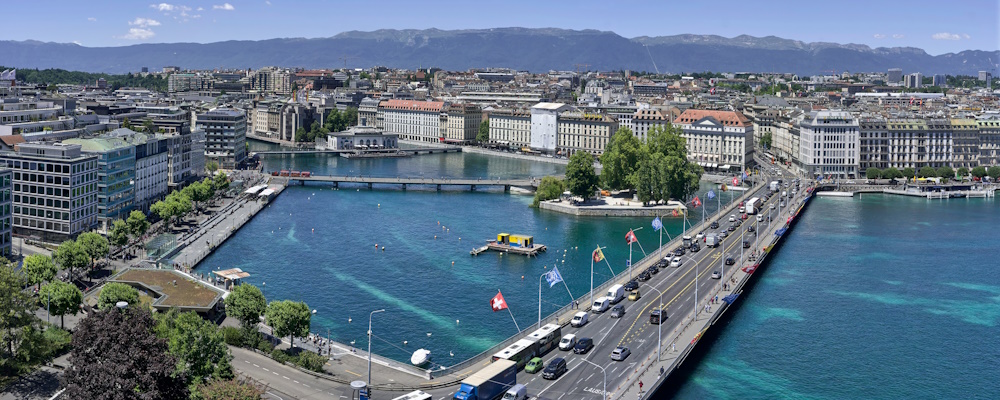
Finding accommodation in Geneva presents a significant challenge due to an extremely competitive housing market. Geneva ranks among Europe’s most expensive real estate markets. Good rental opportunities often disappear within days, requiring lightning-fast responses to new listings. That said, the standard of accommodation is excellent and in line with European norms, although space may be more limited than expats are used to.
Securing a rental means putting together a comprehensive application package. Miss even one required document, and your chances of nailing down that lease will be slim.
Many expats opt for border towns in France like Ferney-Voltaire, Gex, and Annemasse as more affordable options with reasonable commutes. Within Switzerland, Versoix offers a more laid-back atmosphere that is popular with international organisation employees seeking relative affordability without crossing borders.
Renting Accommodation in Geneva
Best Places to Live in Geneva
Cost of living in Geneva
The cost of living in Geneva is among the highest in the world, particularly when it comes to housing, dining, and everyday expenses. Expats typically earn high salaries to match, but many look to nearby France for savings on groceries and accommodation.
Housing consumes a substantial chunk of most expats’ incomes, with central apartments commanding premium prices. Remember to budget for seasonal utility cost changes, with higher winter bills due to heating.
Excellent public transport and high-speed rail connections to major French cities provide cost-effective alternatives to car ownership. These transport links make it feasible to live in more affordable French border towns while working in Geneva, a popular arrangement that maximises the benefit of Swiss salaries while minimising living expenses. Crossing the border for your shopping yields significant savings, with groceries in France costing about 30 percent less than in Swiss supermarkets.
Living in Geneva with children
Living in Geneva with children offers families a wealth of outdoor and cultural opportunities. The city has wonderful playgrounds and parks that will delight little ones. Geneva Plage has pools and waterslides during summer months, and the Conservatory and Botanical Garden offers year-round exploration.
Rest assured that you and your children will have access to exceptional healthcare. Medical staff are well trained and generally speak English as well as French. Remember that it is compulsory to have health insurance in Switzerland, which is another expense to add to the list. International civil servants and embassy staff (with families) are typically exempted from this requirement.
Childcare presents notable challenges, with limited availability and high costs. For children under four years, childcare is largely considered a private matter and typically not covered by the state. Many expat families rely on private nannies or au pairs due to lengthy waitlists at crèches (daycare centres).
Healthcare and Medical Insurance in Geneva
Finding a school in Geneva
Finding a school in Geneva requires early planning and decisive action. Private and international schools charge substantial fees, plus costs for excursions and extracurricular activities. Public schools offer a free alternative, although instruction is in French.
Geneva has a well-established network of international schools, but competition for places is fierce because of the large expat community, and parents need to act fast to secure a spot for their children. The registration process often involves fees just to process applications.
Non-French-speaking children entering Geneva’s public education system receive valuable support through an adaptation phase featuring intensive language teaching. This structured approach helps students integrate into regular classes as quickly as possible.
School and Education for Expats in Geneva
International Schools in Geneva
Getting around in Geneva
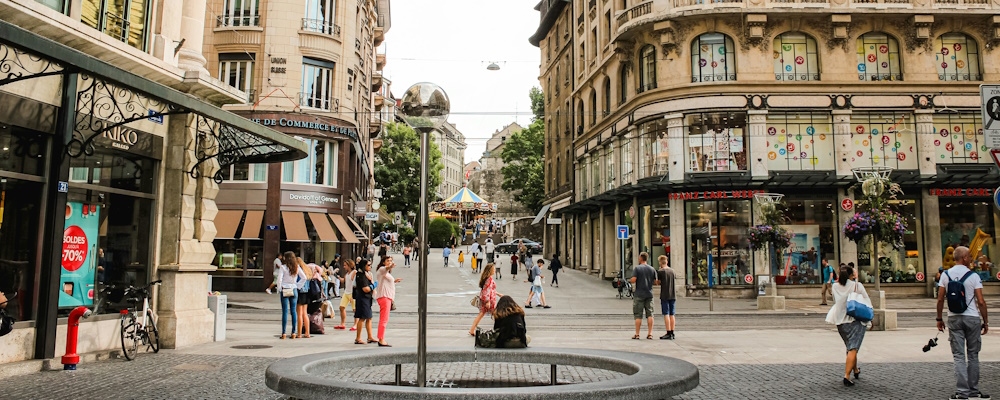
Getting around in Geneva is easy, thanks to the city’s interconnected public transport network of trams, buses, boats and trains. The comprehensive system makes car ownership unnecessary for most residents. The city is also well equipped for cycling, which offers a fast and affordable way to travel, although the infrastructure falls short of cycling capitals like Amsterdam or Copenhagen.
Cross-border commuters face mixed experiences with public transport. The Léman Express train connects Geneva with French communities, although many border residents still prefer private vehicles for flexibility.
Car ownership may benefit those living in outlying areas or frequently crossing into France. Many residents take a balanced approach – using public transport for daily commutes while maintaining car access for weekend excursions to less accessible destinations.
Public Transport, Driver’s Licences and Driving in Geneva
Climate and weather in Geneva
Climate and weather in Geneva follow a moderate continental European pattern with four distinct seasons. Winter months are relatively cold, bringing snow to the ski slopes in the region, while the hot summer brings beachgoers, swimmers and boaters to the waters of Lake Geneva. Temperatures typically range from 30°F (-1°C) to 79°F (26°C) throughout the year.
Shoulder seasons (spring and fall) present unique opportunities to enjoy the region without peak-season crowds. Spring brings blooming parks, lakeside strolls and lively markets, while autumn offers cultural explorations in museums and theatres. These transitional months often deliver pleasant weather, lower prices and fewer tourists.
Public parks cover a quarter of the city, and dozens of museums stand as monuments to the past, with striking views of the Alps painting the horizon. The weekends are for hiking (in summer), skiing (during winter), or just exploring the city’s epic restaurant scene.
Climate and Weather Charts for Geneva
While it may take you some time to adapt, the benefits of living in Geneva are difficult to ignore. Those who move there may well find themselves staying longer than intended, thanks to the high quality of life offered in this beautiful Swiss city.
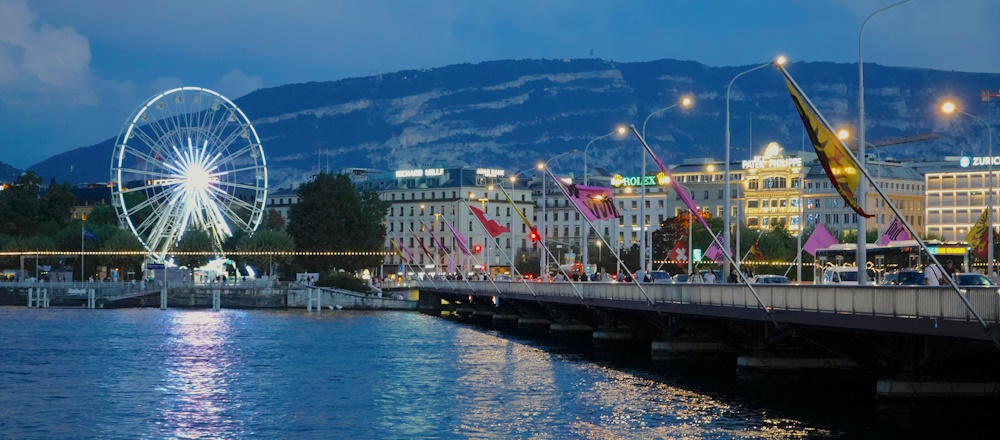
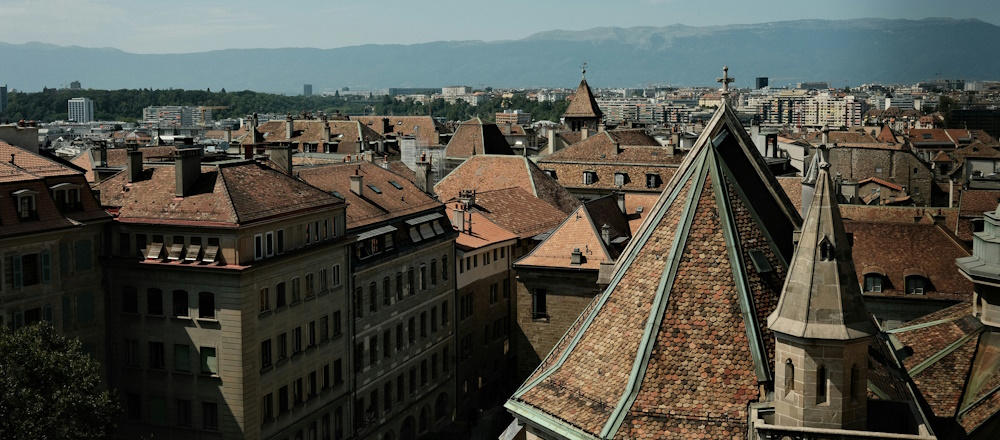
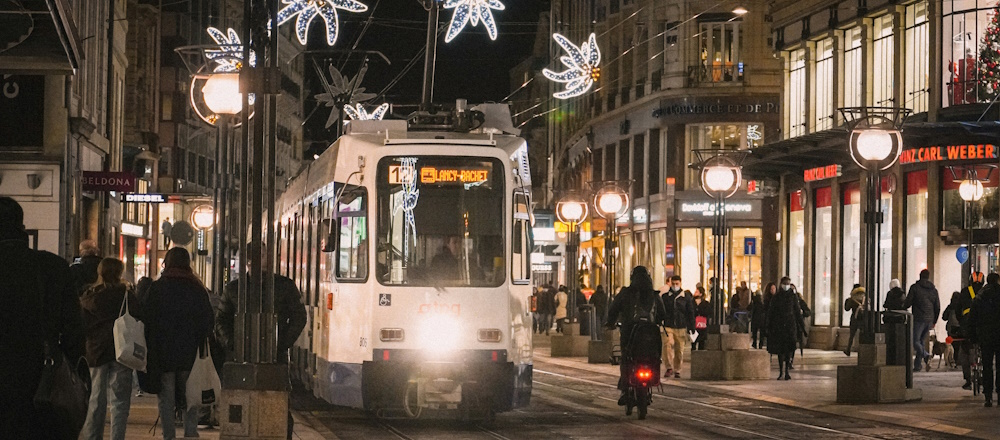





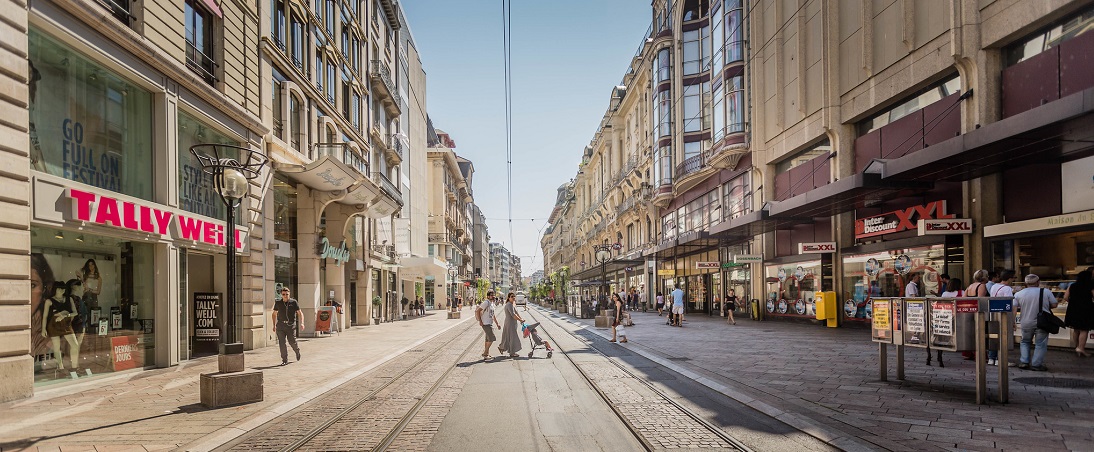 Central Geneva
Central Geneva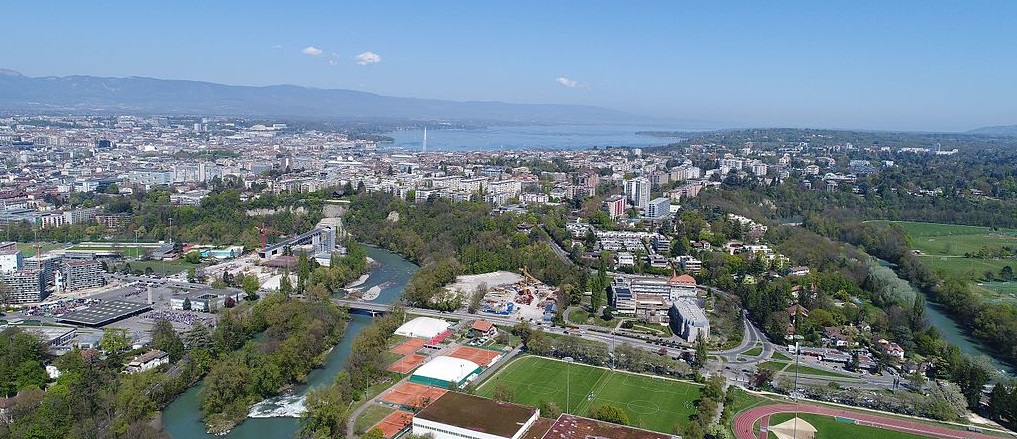 Grottes/Saint-Gervais
Grottes/Saint-Gervais




